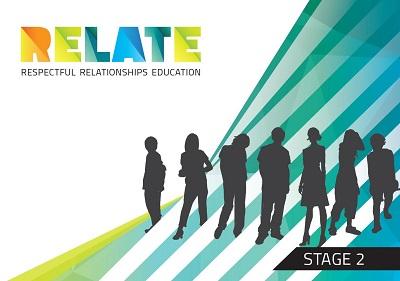
Learning objective

A one term respectful relationship program consisting of 8 scaffolded sessions covering - creating a group agreement, assessing prior knowledge, difference between gender stereotypes and expectations, respectful relationship qualities, non-consensual image sharing, decision making frameworks, communication techniques, ethical bystanders and critical analysis of websites.
Each stage can be delivered in isolation but is best delivered sequentially.
Stage 2 is suggested for Year 8 or 9 but may be suitable for lower or higher year groups depending on student demographics.
Take home messages
Curriculum links
RELATE has been designed to improve students' knowledge, attitudes, skills and behaviours to recognise and engage in respectful relationships. This includes increased:
- awareness of, and respect for, diversity
- understanding of the impact of gender expectations and social norms on relationships and sexual health
- understanding of, and skills for, ethical behaviour in the context of relationships
- skills to establish and maintain positive, equitable and respectful relationships
- capacity to identify and address disrespectful behaviour
- digital literacy skills
- critical analysis skills
- knowledge of, and ability to access, a range of support people and services.
It provides opportunities for young people to explore attitudes and peer, gender, social and cultural influences that impact on behaviour in relationships; identify perceived and actual peer norms and rectify incorrect perceptions; examine their expectations and the value they place on different behaviours within relationships as well as develop skills and confidence to carry out desired behaviours (self-efficacy).
Gender analysis is core to the approach of the RELATE program. Gender inequality and gendered expectations in relationships are understood as key issues underpinning the occurrence of relationship violence and poor sexual health outcomes. Gender is explored by considering individuals within the context of relationships, communities and society. This is extended using a human rights framework, that considers not only gender but includes race, ethnicity, class, sexual orientation, disability, religion and culture.
RELATE Stage 2 covers all of the Personal, social and community health descriptors in the Year 8 and Year 9 Health and Physical Education Syllabus. See RELATE 2 WA Curriculum Mapping (63KB) for descriptors mapped to individual session plans.
Materials
Learning activities
RELATE Program
8 x lessons
See RELATE Stage 2 full program (18MB) for the entire package of lesson plans including lists of materials required for each session, posters, activity sheets and teaching notes.
Sexual Health Quarters (SHQ) conducted the research and original development of RELATE (1st and 2nd edition). SHQ has had no involvement with any subsequent updates or editions of RELATE.



